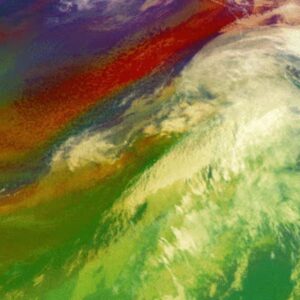
EPIC at the AGU Annual Meeting
December 9 – 13, 2024
EPIC is gearing up for its participation in the AGU Annual Meeting, taking place December 9 – 13, 2024. This meeting is the most influential event in the world dedicated to the advancement of Earth and space sciences.
The meeting will be held in Washington, D.C., and online everywhere. More than 25,000 attendees from more than 100 countries will convene to explore the theme, “What’s Next for Science.” AGU24 will host a diverse community of scientists, students, journalists, policymakers, educators, and organizations who are coming together to share, inspire, collaborate, and engage as a united community grounded to better understand our planet and environment, opening pathways to discovery, opening greater awareness to address climate change, opening greater collaborations to lead to solutions and opening the fields and professions of science to a whole new age of justice equity, diversity, inclusion, and belonging.
Poster Session
Jose-Henrique Alves, Hendrik Tolman, and Neil Jacobs
Topics in this session will include discussions on the motivation and process by which the community can work together to explore, validate, and integrate all aspects important to advancing weather and climate prediction.

Abstracts

Advancing Atmospheric River Prediction: Development and Implementation of a High-Resolution Forecasting Framework
Anil Kumar
The Earth Prediction Innovation Center (EPIC) is collaborating with NOAA labs to improve Atmospheric River (AR) forecasts on the West Coast, where ARs contribute up to 50% of annual precipitation but cause severe damage. A new high-resolution model (UFS-Global Nest) focused on California will be deployed on platforms like AWS and Gaea, integrating AI/ML to boost forecast accuracy for AR-related precipitation.EPIC Systems Architecture: Enabling Rapid Innovation
Kristopher Booker
The EPIC program has enabled rapid innovation within the numerical weather model community through its implementation of various CI/CD pipeline tools, and publicly accessible dashboards. This timely feedback coupled allowed innovation to be quickly assimilated into the UFS model suite.


Computational Benchmark Performance and Portability of the NOAA Unified Forecast System Model Infrastructure
Jong Kim
The Unified Forecast System (UFS) Weather Model and Applications constantly evolve for the support of short- and medium-range operational forecast systems. EPIC code management team provides a hierarchical test infrastructure overview with extensive computational performance comparison of the UFS Weather Model and Application configurations currently available in the UFS GitHub repositories.Empowering Forecasting Innovation Through EPIC Community Engagement and User Support
Aaron Jones
The EPIC Community Engagement (ECE) team supports the EPIC program’s innovation through several initiatives, including community training events and the annual Unifying Innovations in Forecasting Capabilities Workshop (UIFCW). The ECE team also coordinates with the EPIC User Support team to update UFS application documentation, compiling technical FAQs, monitoring of support requests, while separately conducting outreach strategies all in an effort to meet the community’s needs.

Ensemble-based Data Assimilation and forecasts using a single coupled JEDI/UFS application
Mark Potts
Ensemble-based data assimilation (DA) workflows have historically been extremely complex and cumbersome due, largely to the sheer number of files and I/O that are required. The Earth Prediction Innovation Center (EPIC), in collaboration with NOAA-PSL and the Joint Center for Satellite Data Assimilation (JCSDA), have recently developed a coupled JEDI/UFS system that removes this complexity by incorporating both the ensemble of forecasts and the calculation of the DA analysis into a single executable.UFS Application Workflow Convergence - Developing a Clear Path to Operations for the Community
Keven Blackman
There was a collaborative effort between the Earth Prediction Innovation Center, Global Systems Laboratory, and NCEP Central Operations, to better understand how community and operational model development can coexist. In the UFS, a broad community exists with differing goals. It has been clear that we need a defined path for research to flow into operations so that workflows do not diverge over time.



